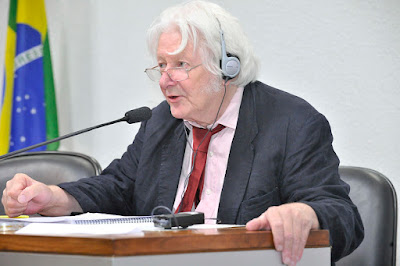 |
| Judith Faust |
Judith was a dear friend of mine and my wife's when we lived in Arkansas in the 20-aughts. I am sorry that, since moving to the northeast, we did a poor job staying in touch beyond the occasional greeting card. Judith died comfortably in hospice from cancer, a friend caring for her, Amy Freer, reported on Facebook.
Judith continued teaching in the Arkansas Public Administration Consortium (APAC) after retirement. Her personality juxtaposed an earnest commitment to good works and a light-hearted spirit. Here is her APAC biographical statement, which I suspect she wrote.
Judith Faust sometimes describes herself as "an organization junkie," having long been fascinated by how organizations work, and especially by what community-based nonprofits can accomplish. She's retired from the faculty at the University of Arkansas Little Rock, having for two decades taught graduate students in social work about nonprofit management and community practice. Her own work has included directing a program for runaway and homeless youth, a management-support organization for Arkansas nonprofits, and the state's Division of Children and Family Services. She volunteers presently with KUAR, the Quapaw Quarter United Methodist Church, and pretty much whomever asks her.
In case you wonder about such things, her undergraduate degree—a double major in journalism and philosophy—was earned from the University of Kansas, and her graduate degree—an MSW with a concentration in community organization and planning—from Tulane University.
We were privileged for many years to share a book group with Judith. She was thoughtful and insightful, and always we looked forward to delighting in her erudite company. Her home was packed with books, filling every available space, with shelves built into every corner and nook. You could pull down any title, and she could recall her impression of it, as well as the time of life in which she had read it and how it shaped her worldview.
With his permission, I share from Facebook (Nov. 10) the well stated sentiments of our friend Andrew Eshleman, now a philosophy professor at the University of Portland. Andrew succinctly captured my own experience, memory, and impression of Judith better than I can.
Just learned that a former colleague, Judith Faust, has died. We became friends while working together on the Faculty Senate at UALR, and she gets a good bit of the credit for showing me how that sort of work could be a rewarding and meaningful part of my career. But, oh!—then to see (from afar after moving away) her ongoing grit, honesty, thirst for understanding, and embrace of what's rich and beautiful in every nook and cranny of life during a long battle with cancer.
Here's Judith, from a few years back, to members of an email group following her difficult journey: "I think I'm finally coming out of the emotional woods. And those are the woods that count, aren't they? Life happens, in its glory and cruelty and ordinariness and all the uncounted shades between, and how we are, how we really are, is about how we experience it."
Then, with her signature honesty, she would acknowledge the ongoing struggle to experience things as she hoped as challenges multiplied. What a privilege to walk a little bit of life's path with such a soul.
Amy on Facebook wrote: "For those asking, while she did not outline wishes for a funeral service, donations on her behalf to one the following charities (hand-picked by Judith herself) would be most welcome:"
- Progressive Arkansas Women (PAC)
- ACLU of Arkansas
- Arkansas Museum of Fine Arts
- Little Rock Public Radio (KUAR/KLRE)
- Central Arkansas Library System Foundation
Judith touched many, many lives and left them better than she found them.










